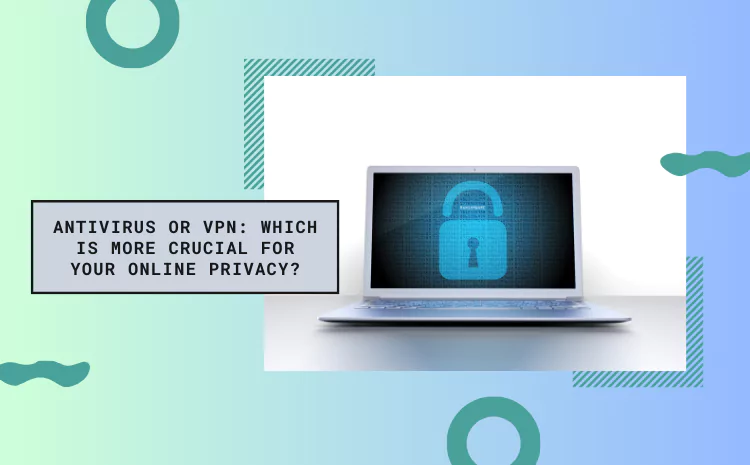In today’s digital world, online privacy is a major concern for many internet users. Two of the most common tools used to protect privacy online are antivirus software and Virtual Private Networks. But which one is more important for safeguarding your personal information and data? Here are the key differences between antivirus and VPNs to help you determine which is more crucial for your online privacy.
How Antivirus Software Protects Privacy?
Antivirus software is designed to detect and remove malware like viruses, spyware, ransomware, and other malicious programs that can compromise your privacy. Here’s how antivirus helps protect your privacy online:
- Real-time scanning – Most antivirus software scans files and processes in real-time to catch malware before it can infect your device. This prevents snooping malware from stealing your data.
- Malware removal – If malware makes it onto your device, antivirus can quarantine or remove it to stop further privacy leaks.
- Web/Email scanning – Antivirus scans web traffic and emails for malicious links/attachments that could install spyware. This prevents criminals from accessing your device.
- Firewall – Many antivirus tools include a firewall to block unauthorized network access to your device, preventing intruders from accessing your data.
- Anti-phishing – Antivirus can detect fraudulent emails and websites designed to steal your personal information through phishing. This keeps criminals from tricking you into handing over sensitive data.
How VPNs Enhance Online Privacy?
While antivirus protects your devices, a VPN encrypts your internet traffic to keep your online activities private. Here’s how VPNs enhance privacy:
Encrypted data
VPNs use military-grade encryption to scramble your internet traffic so that hackers, your ISP, and other snoops can’t see what you’re doing online. This prevents them from logging your activities.
Altered IP address
VPNs mask your real IP address with one from the VPN server’s location. This hides your identity and prevents tracking of your internet usage.
Bypass geographic blocks
VPNs allow you to access region-restricted content by making it seem like you’re browsing from another country. This prevents localization and censorship based on your location.
Public Wi-Fi security
On public networks, VPN encryption protects your data from hackers that may be snooping on the traffic. This keeps your browsing secure.
Onion routing
Some VPNs offer onion routing which routes your traffic through multiple servers for enhanced anonymity. This makes it very difficult to trace traffic back to you.
Which is More Important for Privacy?
So when it comes to safeguarding your online privacy, is antivirus or VPN more important? The truth is, both serve very different but equally crucial purposes.
Antivirus is essential for keeping malware off your devices to prevent privacy violations at the source. VPNs encrypt your traffic to keep prying eyes from spying on your activities.
Using just one or the other leaves you exposed. Antivirus can’t protect data in transit, while VPNs don’t secure endpoints from malware. For comprehensive privacy protection, most experts recommend using both antivirus software and a VPN together.
How to Choose the Right Privacy Tools?
Here are some tips for choosing effective antivirus and VPN software for protecting your online privacy:
For antivirus:
- Select software with high malware detection rates from independent testing labs like AV-Test.org.
- Prioritize real-time scanning and robust anti-phishing capabilities.
- Check that the software works on all your devices like Windows PCs, Macs, smartphones and tablets.
For VPN:
- Choose a provider with a strict no-logs policy, ensuring they don’t record your activity.
- Consider VPNs that offer onion routing or multi-hop connections for enhanced anonymity.
- Select VPN software that doesn’t leak your IP or DNS data like ExpressVPN or NordVPN.
- Ensure the VPN has apps for all your devices and allows for multiple simultaneous connections.
Conclusion
Safeguarding your privacy online requires both securing your devices with antivirus and encrypting your browsing with a VPN. Antivirus prevents malware from stealing data locally, while VPNs protect your traffic from prying eyes. For comprehensive online privacy, use both antivirus and VPN software and keep them updated. With the right tools, you can rest assured your personal information is secured.

